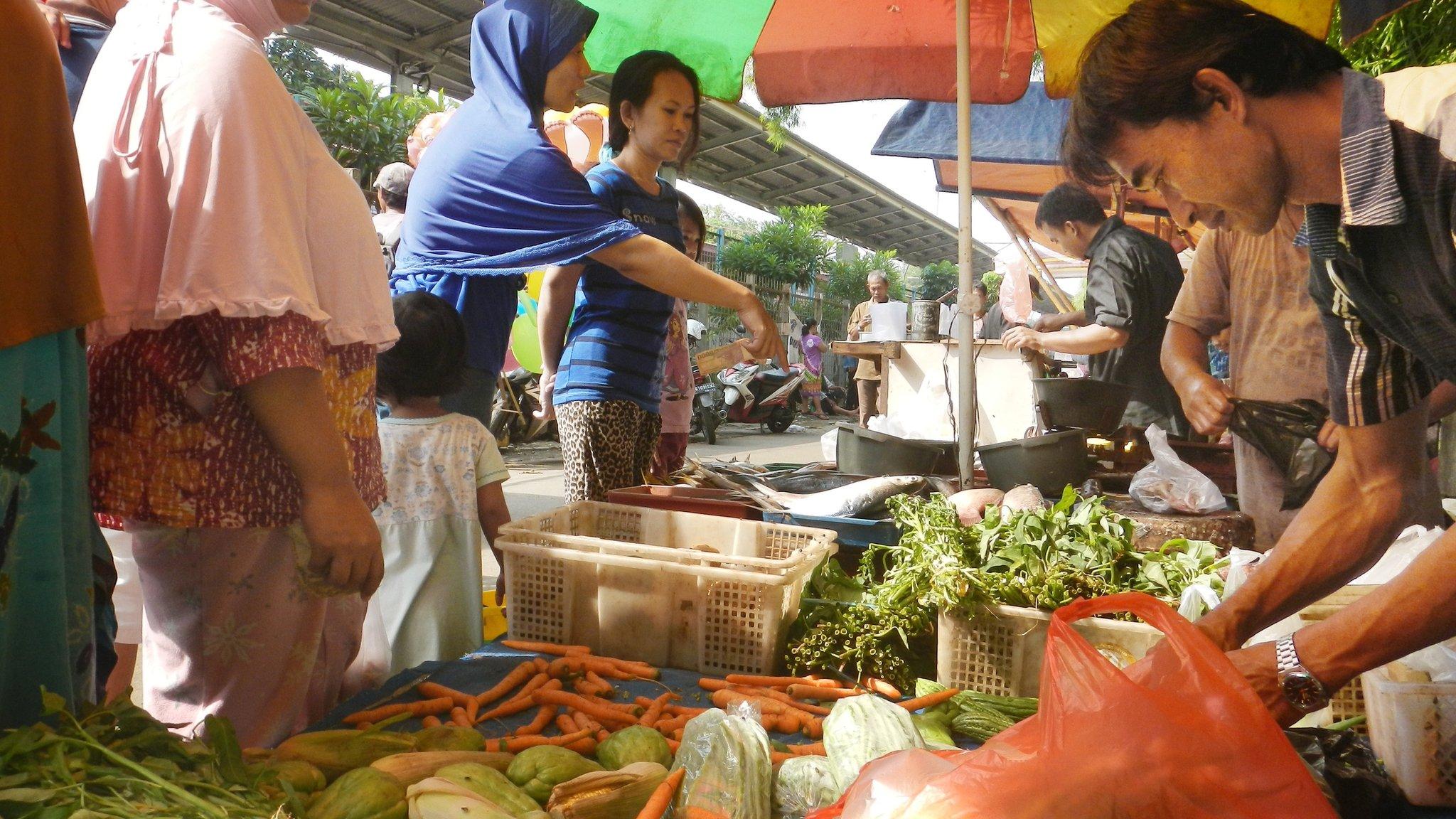Indonesia's growth in 2015 slows for fifth consecutive year
- Published
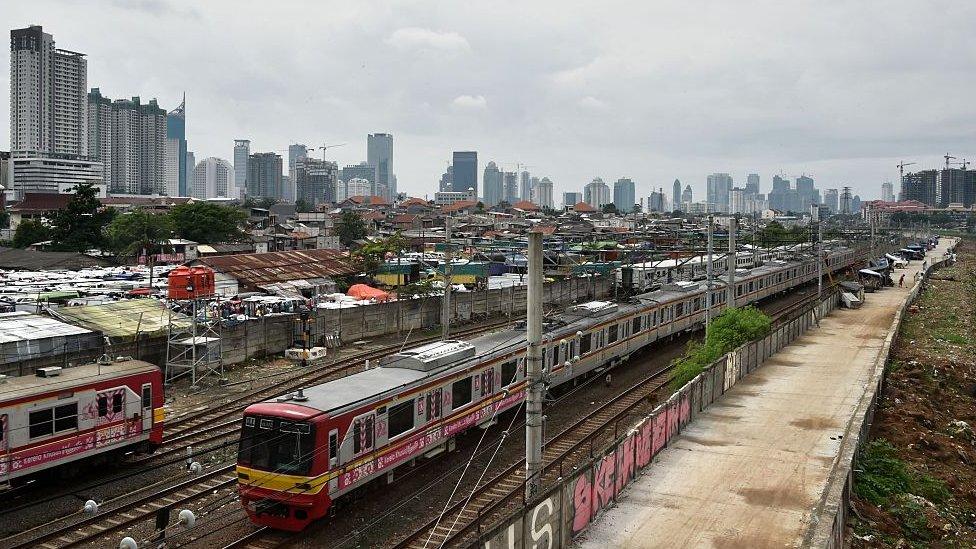
The poor state of much of Indonesia's current infrastructure, particularly in the capital Jakarta, has hampered economic growth
Growth in South East Asia's largest economy, Indonesia, has come in at 4.76% for 2015, marking the fifth consecutive yearly decline.
Weaker commodity prices and consumer spending, together with a slowdown in its key trading partner, China, has hurt growth.
Towards the end of last year, however, the economy expanded by just over 5%, boosted by government spending.
President Joko Widodo had promised to lift annual growth to 7% on average.
However, the country has seen an average of just under 6% growth over the past decade and analysts have said growth is unlikely to improve for some time.
"The fourth quarter data is a positive surprise," economist Tony Nash told the BBC.
"But unfortunately the uptick will likely be short lived. We expect deterioration in the first quarter and it'll be tough to regain growth momentum before 2017," he added.
Mr Widodo made his promise to raise growth when his five-year term began in 2014, but he has faced problems boosting government spending and has seen several large infrastructure projects delayed.
A $5.5bn high-speed railway project, funded by China, was signed last year and is scheduled to be up and running by 2019.
But the project has faced widespread objections from transport experts and its long-term viability has been questioned.
Mr Widodo has also faced international condemnation for the country's man-made forest fires, which have caused serious economic and environmental damage.
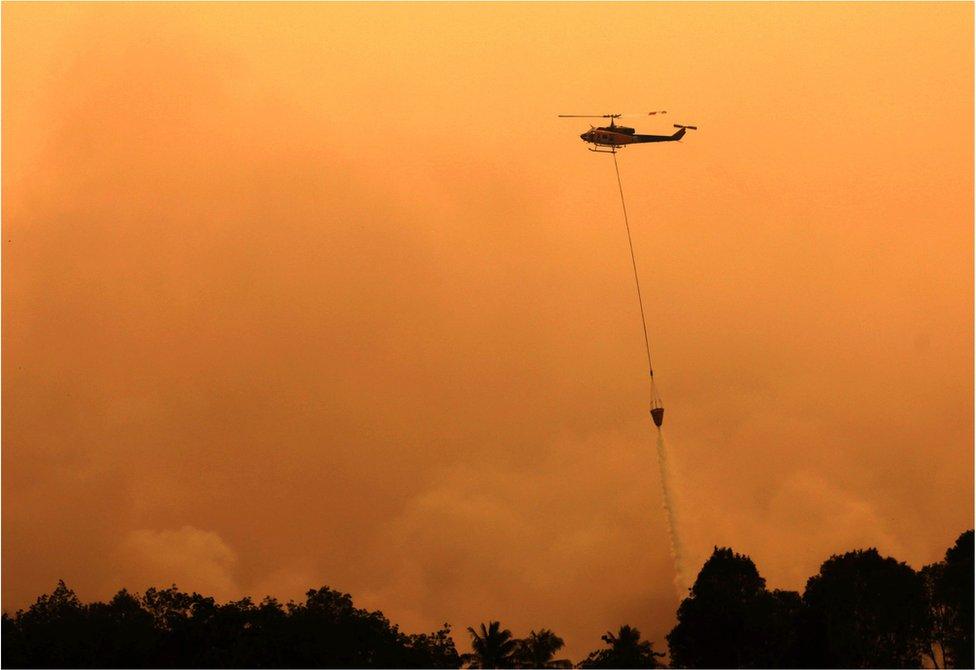
The World Bank said the cost of the fires in 2015 amounted to 1.9% of Indonesia's GDP
In December, the World Bank said Indonesia's forest fires last year had likely cost the country more than twice the amount spent on reconstruction efforts after the 2004 Aceh tsunami.
In its quarterly report, external, the bank said the fires had cost some 221tn Indonesian rupiah ($15.72bn; £10.5bn).
It added that regional and global costs would be much higher.
- Published25 January 2016

- Published16 December 2015
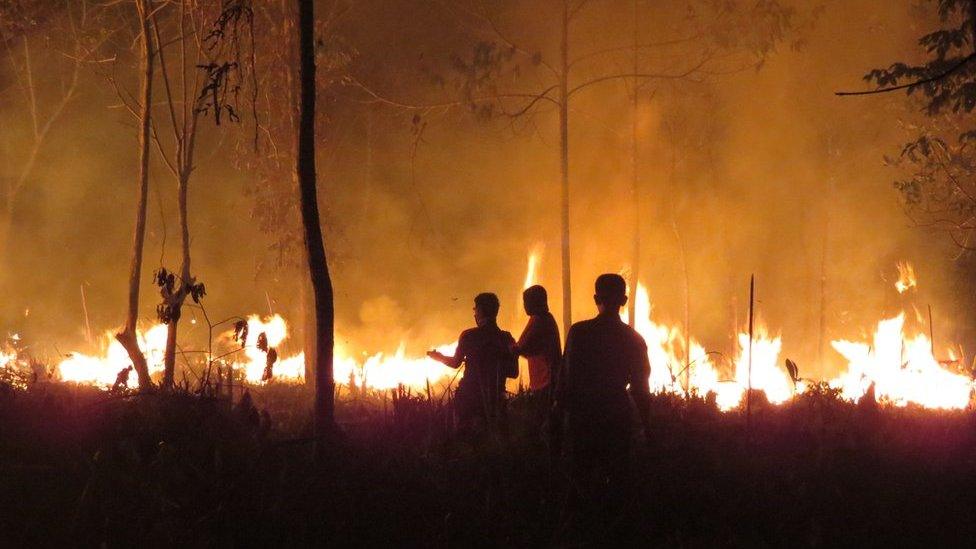
- Published29 September 2015
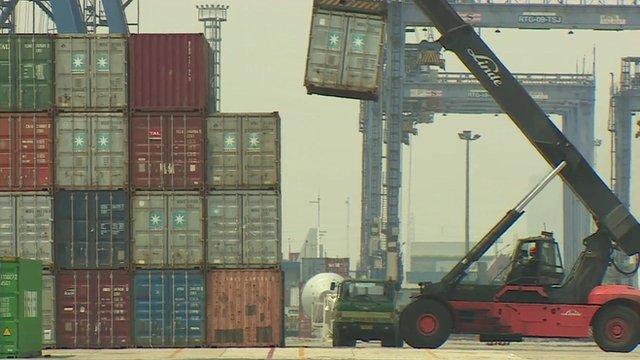
- Published5 May 2015
